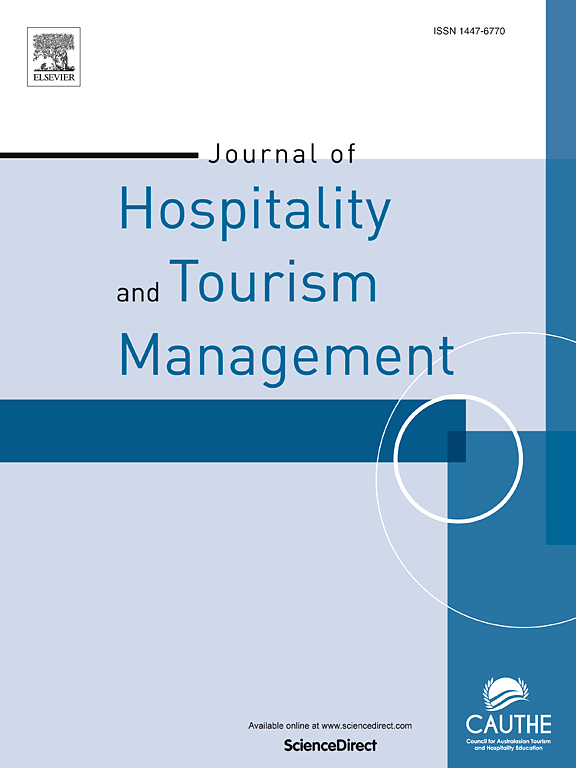带着课本旅行:文化记忆媒介如何影响游客行为
IF 7.8
1区 管理学
Q1 HOSPITALITY, LEISURE, SPORT & TOURISM
引用次数: 0
摘要
教科书是构建文化记忆的重要媒介,影响着人们未来的旅游行为,但其作用机制尚不明确。本研究运用文化记忆理论和刺激-机体-反应框架,探讨了文化记忆媒介对旅游前后行为的影响。采用混合研究方法,通过6个景区的在线评价、156份开放式问卷、323份学生问卷和337份游客问卷收集数据。结果表明,文化记忆包括文本记忆和空间记忆两种媒介。旅行前,基于教科书的文本记忆直接影响读者的访问意愿(f2 = 0.031)。旅游后,基于感官体验的空间记忆直接影响游客忠诚度(f2 = 0.024)。文化记忆可以通过感知真实性、地方依恋和幸福感间接影响旅游行为。与以往的研究不同,本研究揭示了在长期制度化的正规教育过程中,由教科书塑造的游客对目的地的文化记忆如何影响游客的行为,为旅游记忆研究提供了新的视角。本文章由计算机程序翻译,如有差异,请以英文原文为准。
Travel with your textbooks: How cultural memory mediums affect tourist behavior
Textbooks are an important medium for constructing cultural memory, influencing people's future tourism behavior, but the mechanism remains ambiguous. Using cultural memory theory and the stimulus-organism-response framework, this study explored the influence of cultural memory mediums on tourism behavior pre- and post-trip. A mixed research method was used, and data were collected through online reviews of 6 scenic spots, 156 open-ended questionnaires, 323 student questionnaires, and 337 tourist questionnaires. The results show that cultural memory consists of two mediums: textual memory and spatial memory. Before traveling, textbook-based textual memory directly affects readers' visit intention (f2 = 0.031). After traveling, spatial memory based on sensory experience directly affects tourist loyalty (f2 = 0.024). Cultural memory can indirectly influence tourism behavior through perceived authenticity, place attachment, and well-being. Unlike previous studies that focused on individuals' autobiographical memories or nostalgia, this study reveals how tourists' cultural memories about destinations shaped by textbooks during a long, institutionalized formal education can influence tourist behavior, which provides a new perspective on tourism memory research.
求助全文
通过发布文献求助,成功后即可免费获取论文全文。
去求助
来源期刊
CiteScore
13.30
自引率
8.40%
发文量
177
审稿时长
45 days
期刊介绍:
Journal Name: Journal of Hospitality and Tourism Management
Affiliation: Official journal of CAUTHE (Council for Australasian Tourism and Hospitality Education Inc.)
Scope:
Broad range of topics including:
Tourism and travel management
Leisure and recreation studies
Emerging field of event management
Content:
Contains both theoretical and applied research papers
Encourages submission of results of collaborative research between academia and industry.

 求助内容:
求助内容: 应助结果提醒方式:
应助结果提醒方式:


